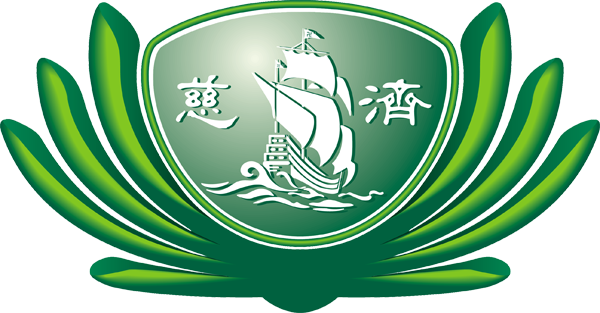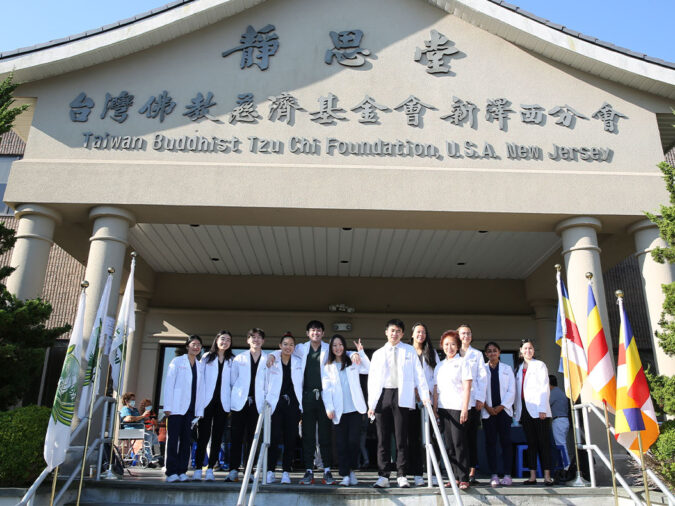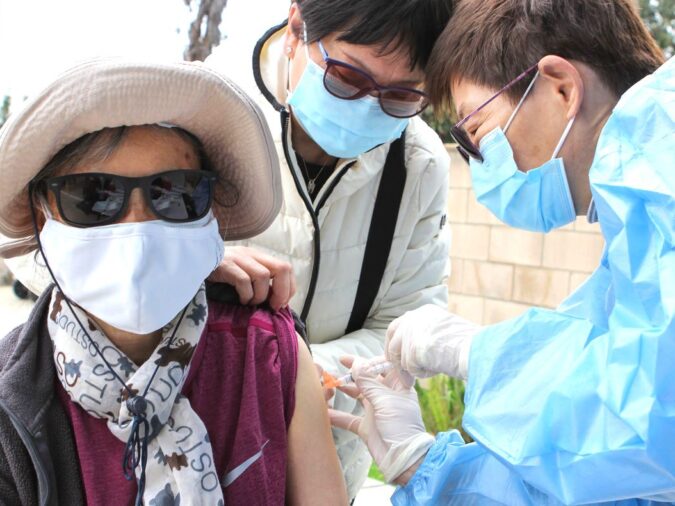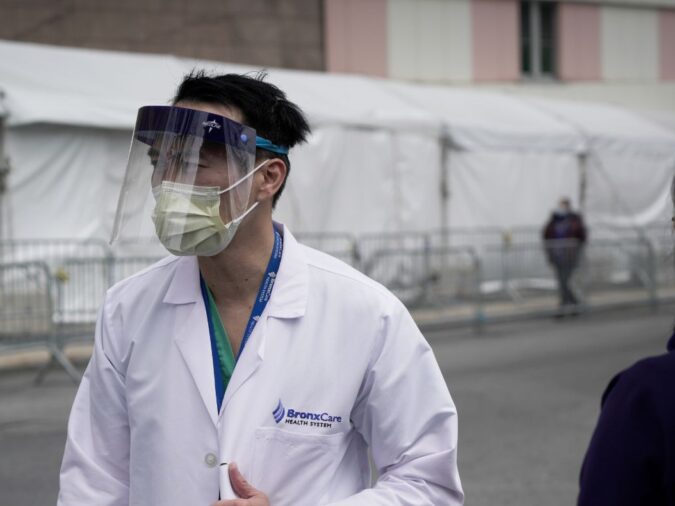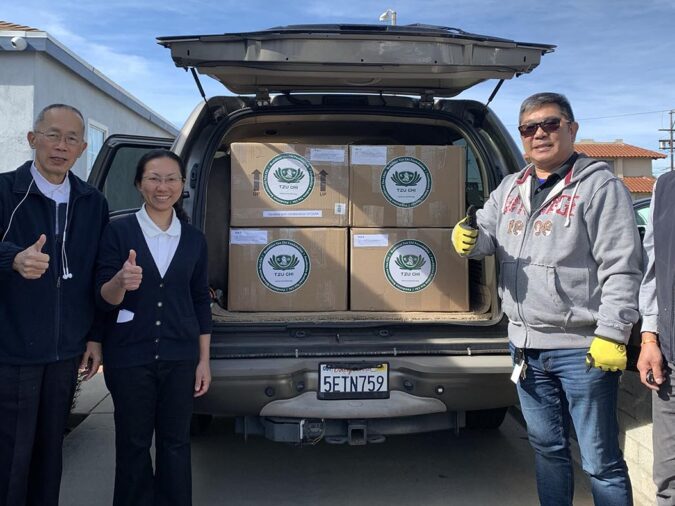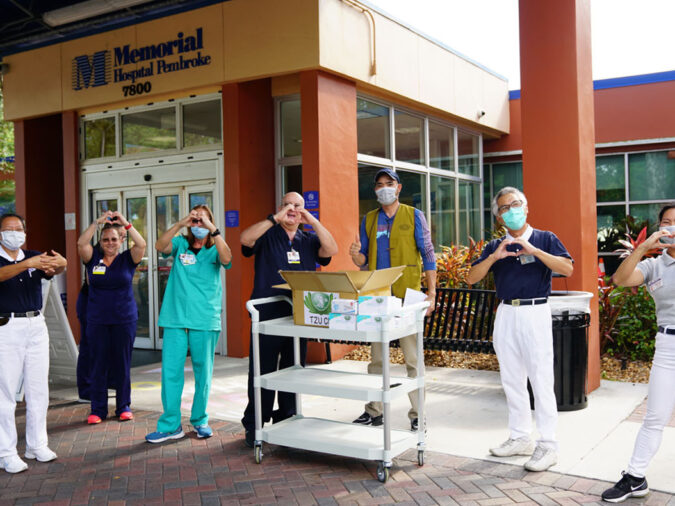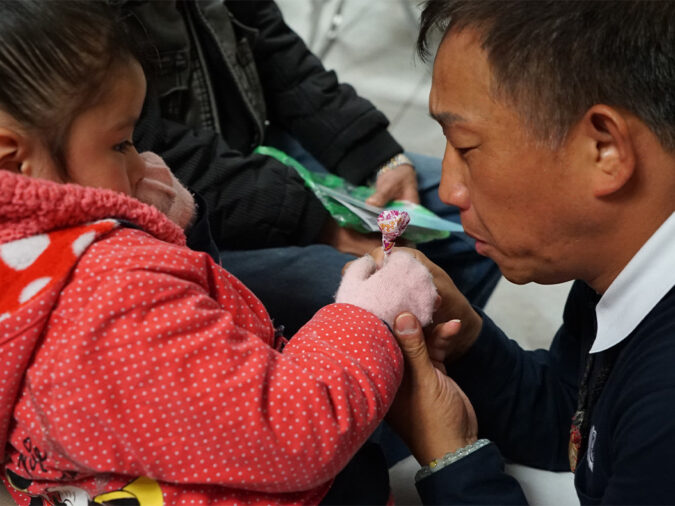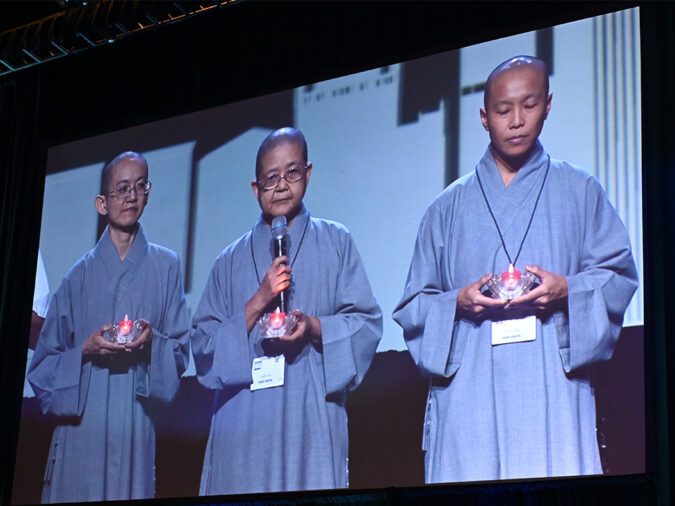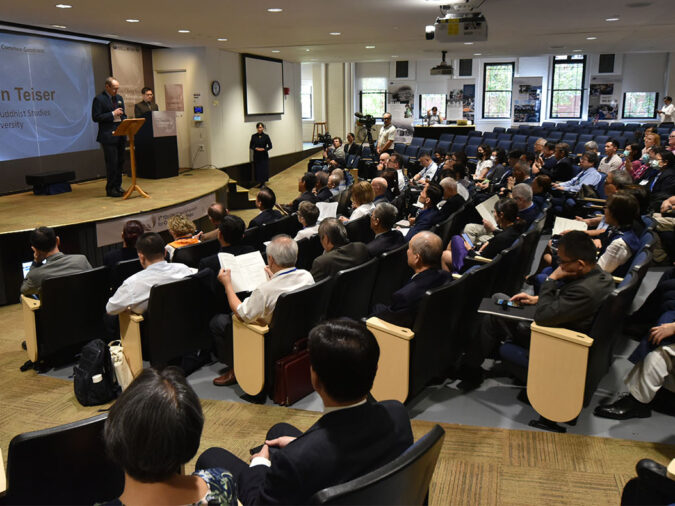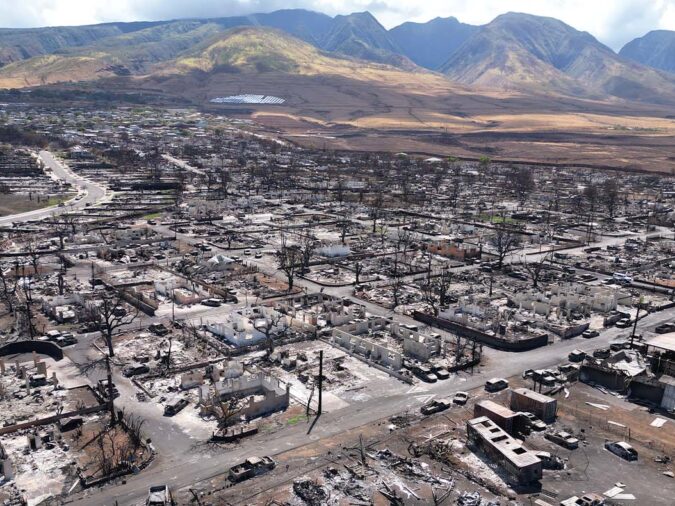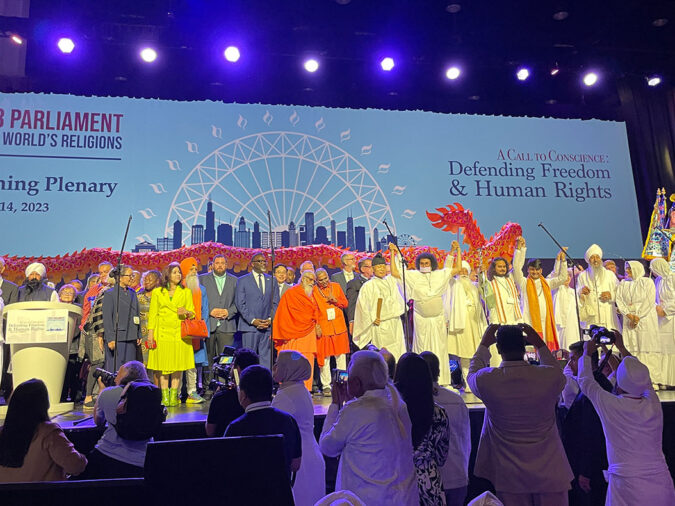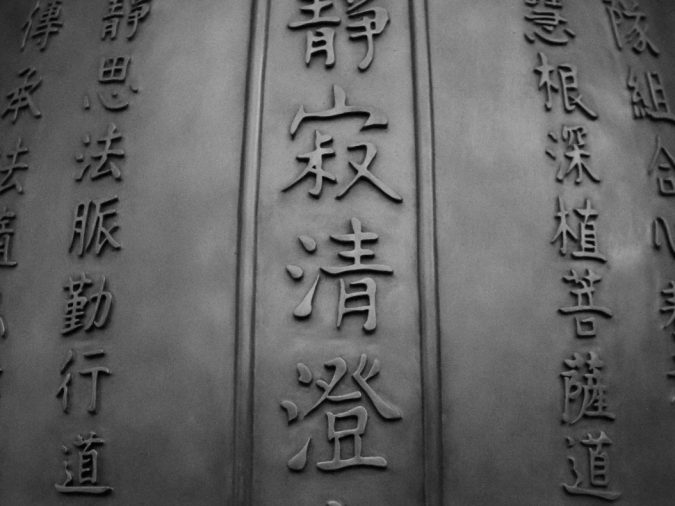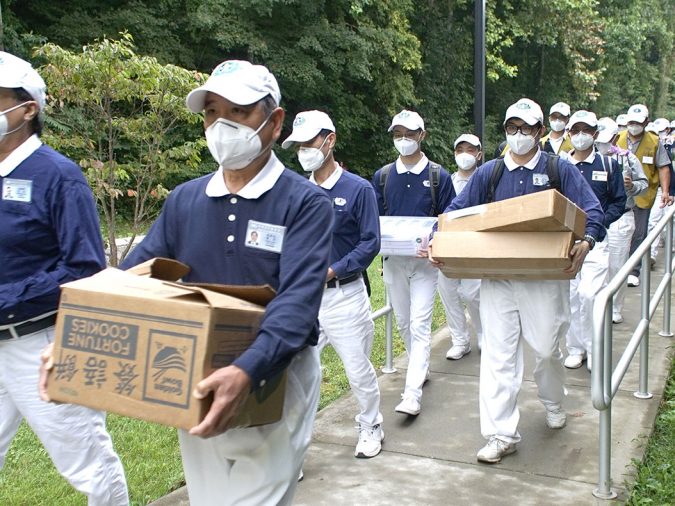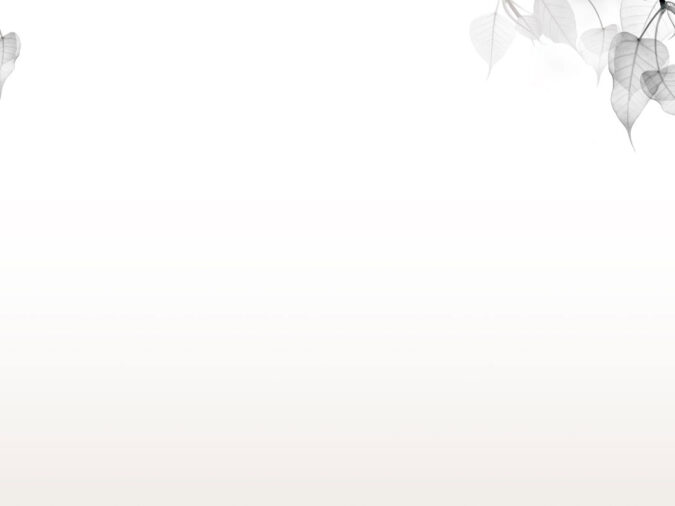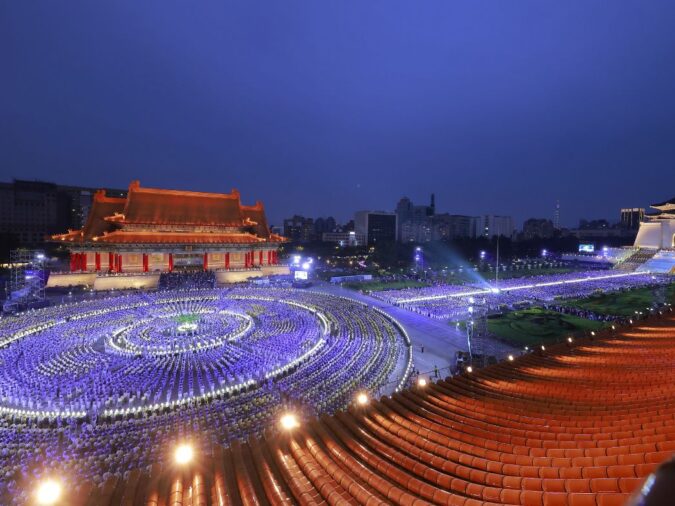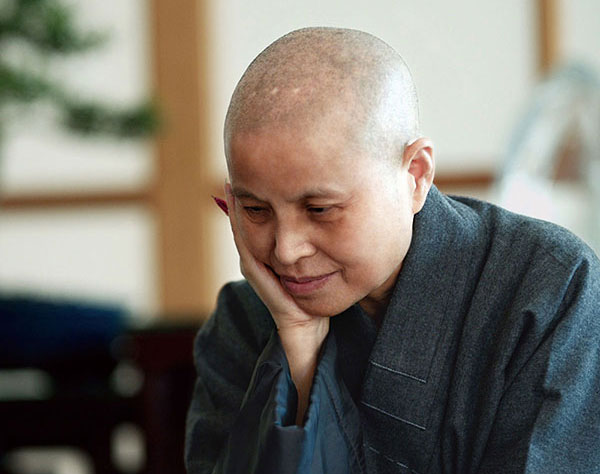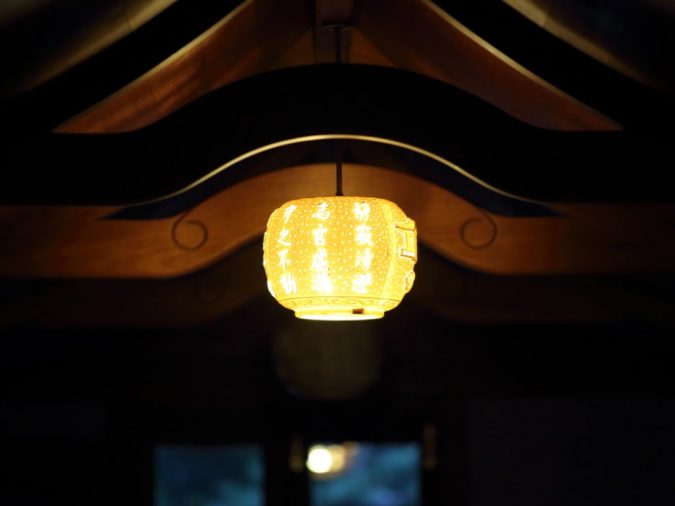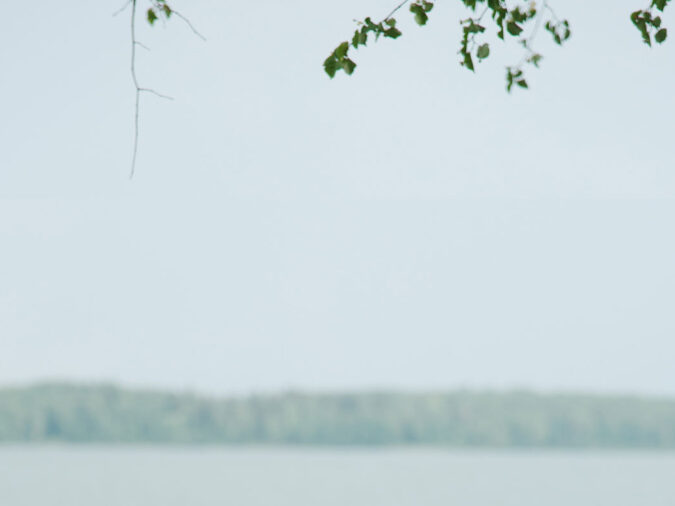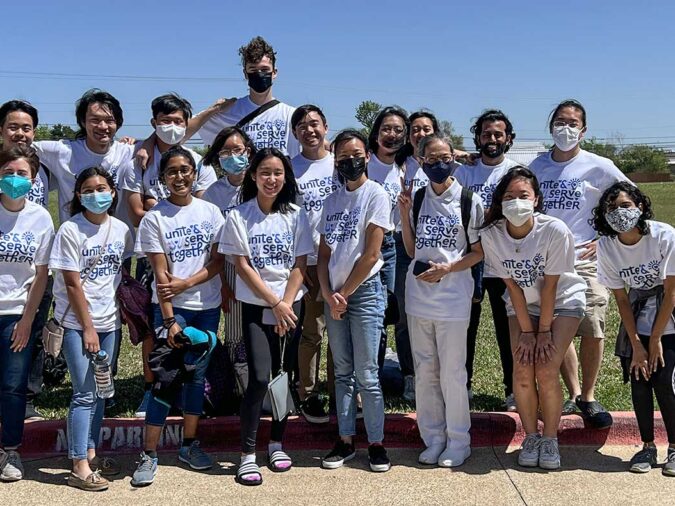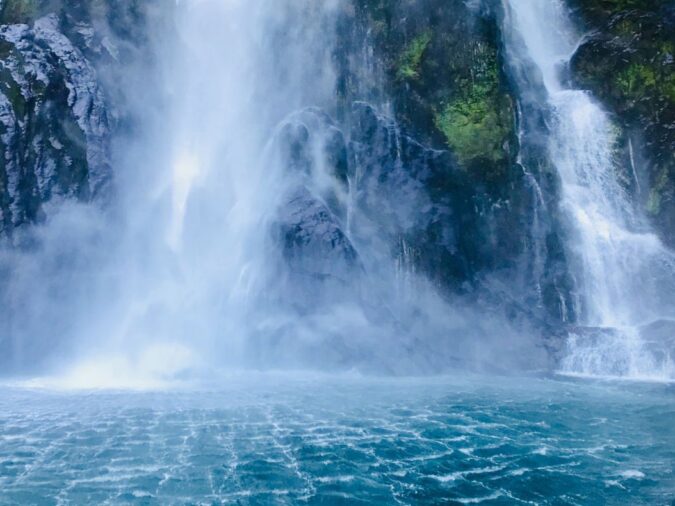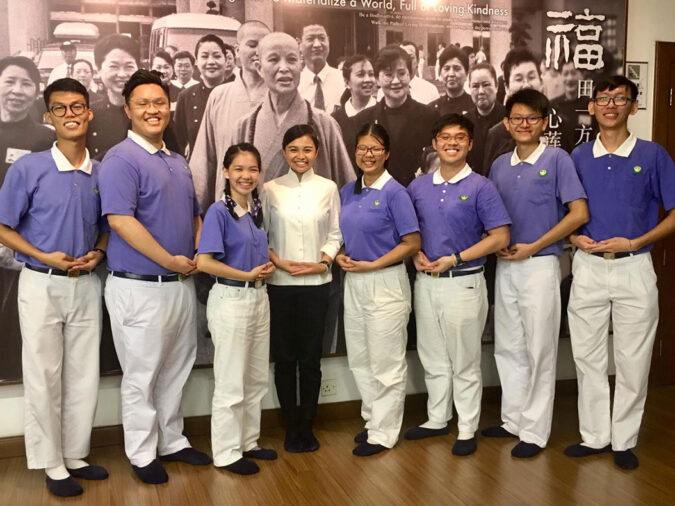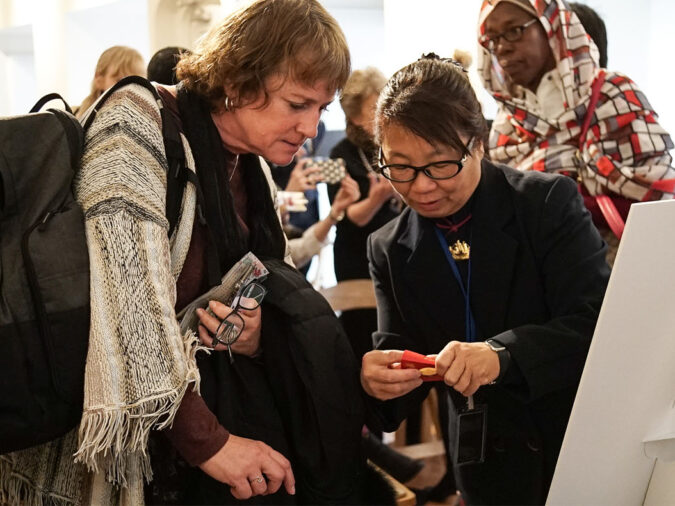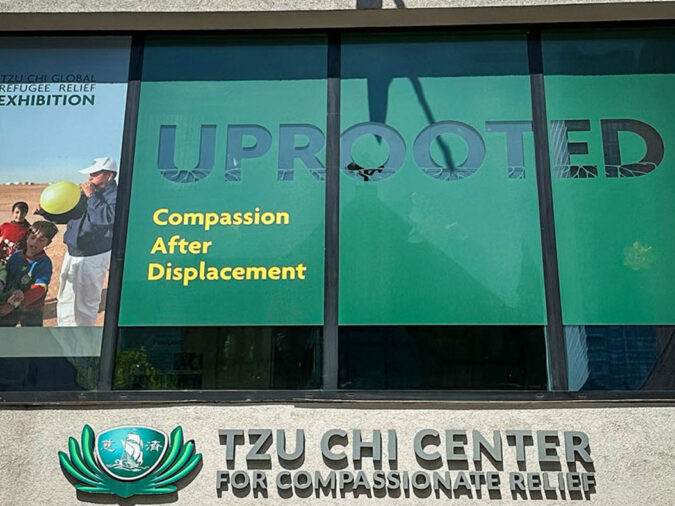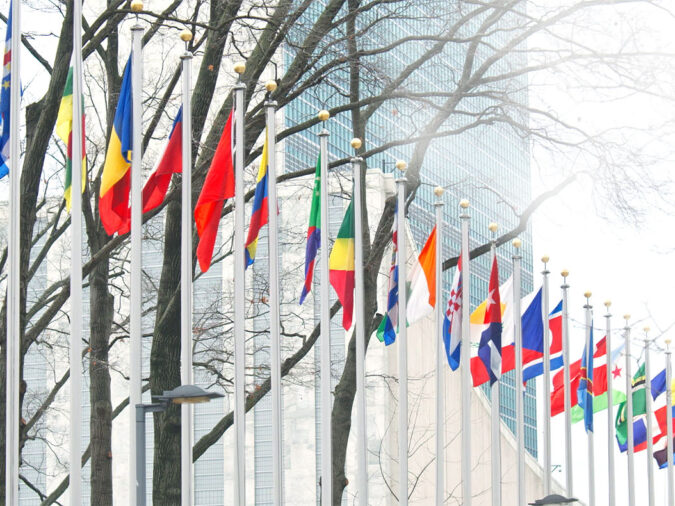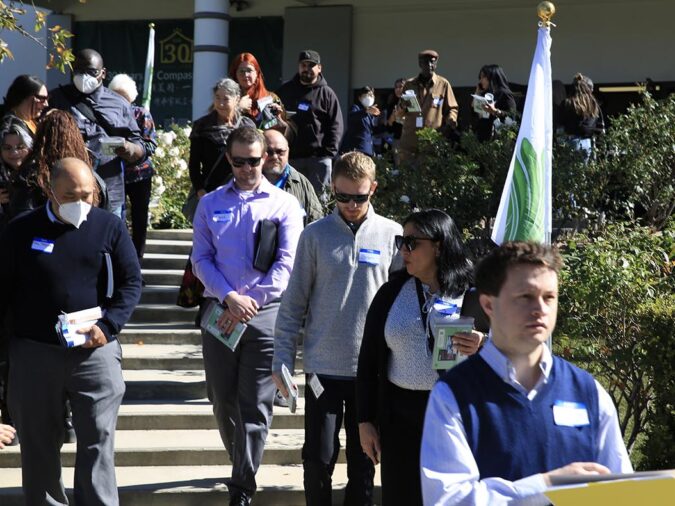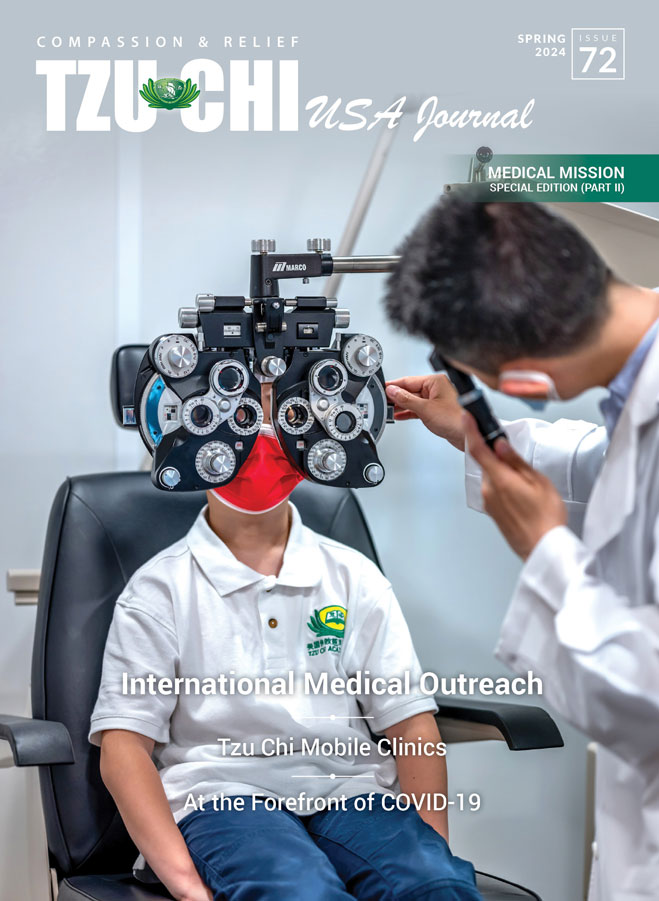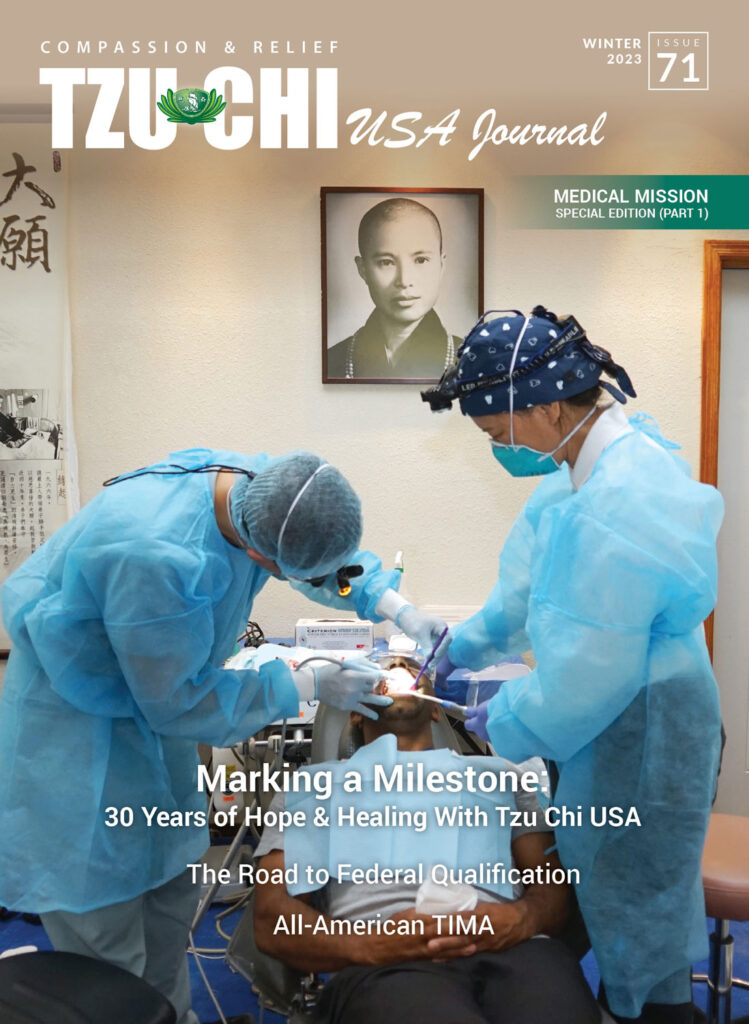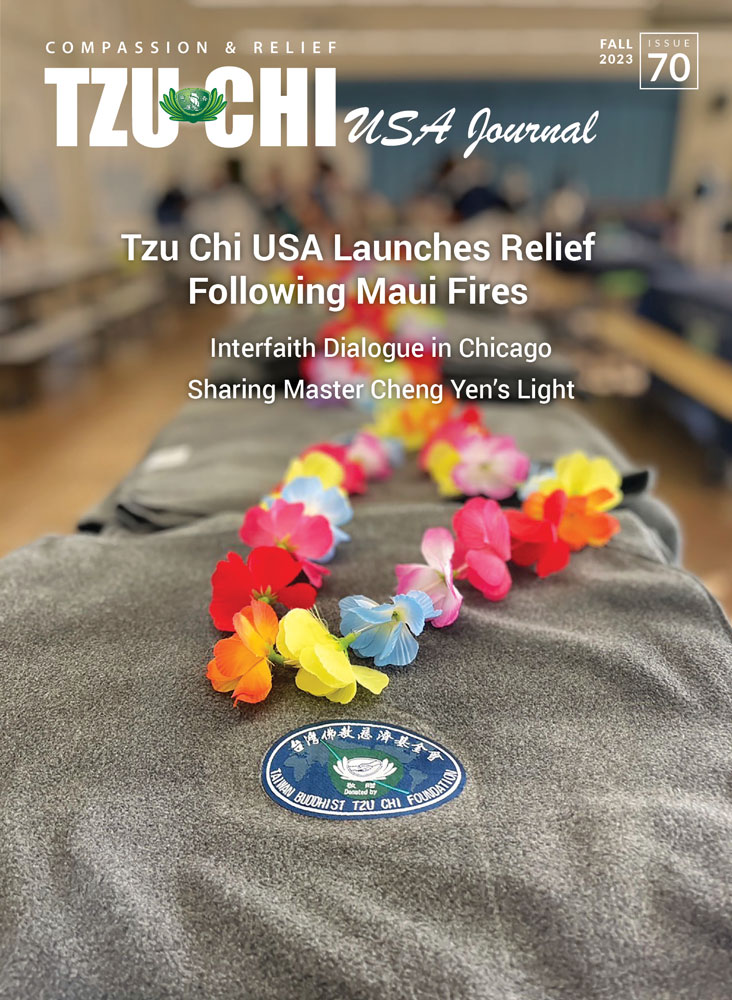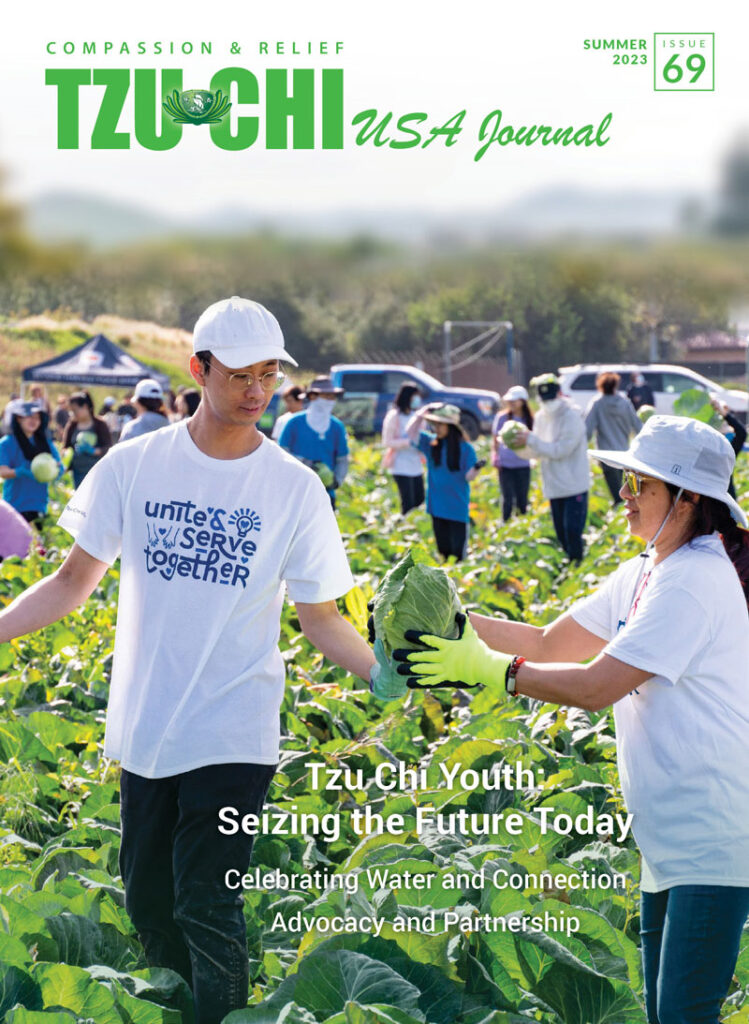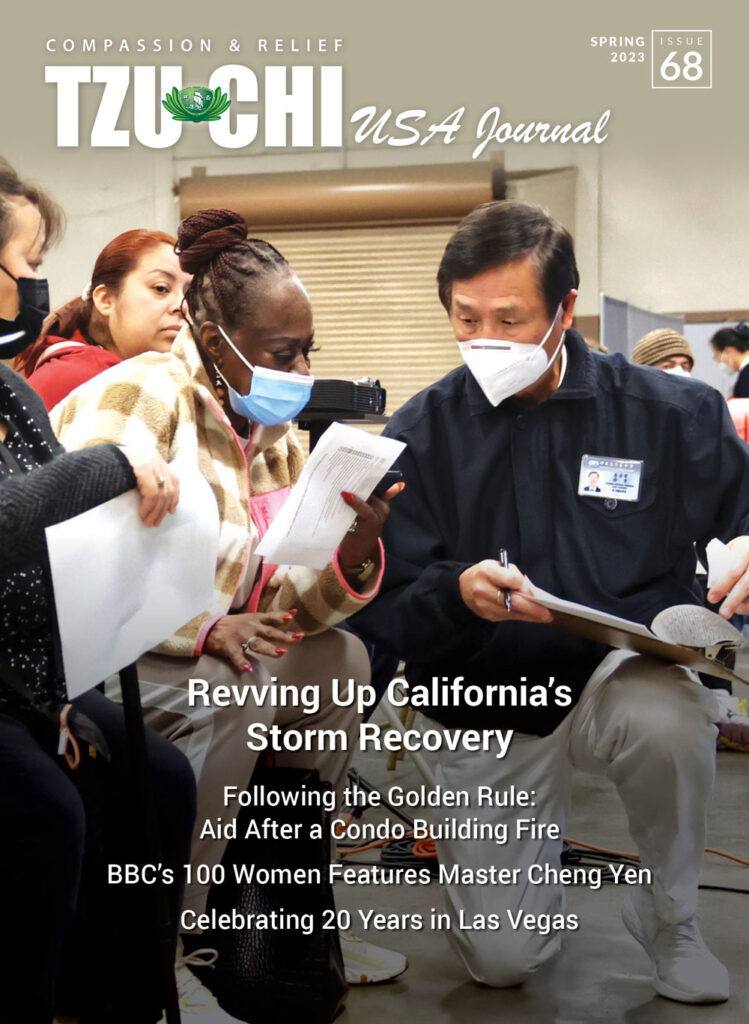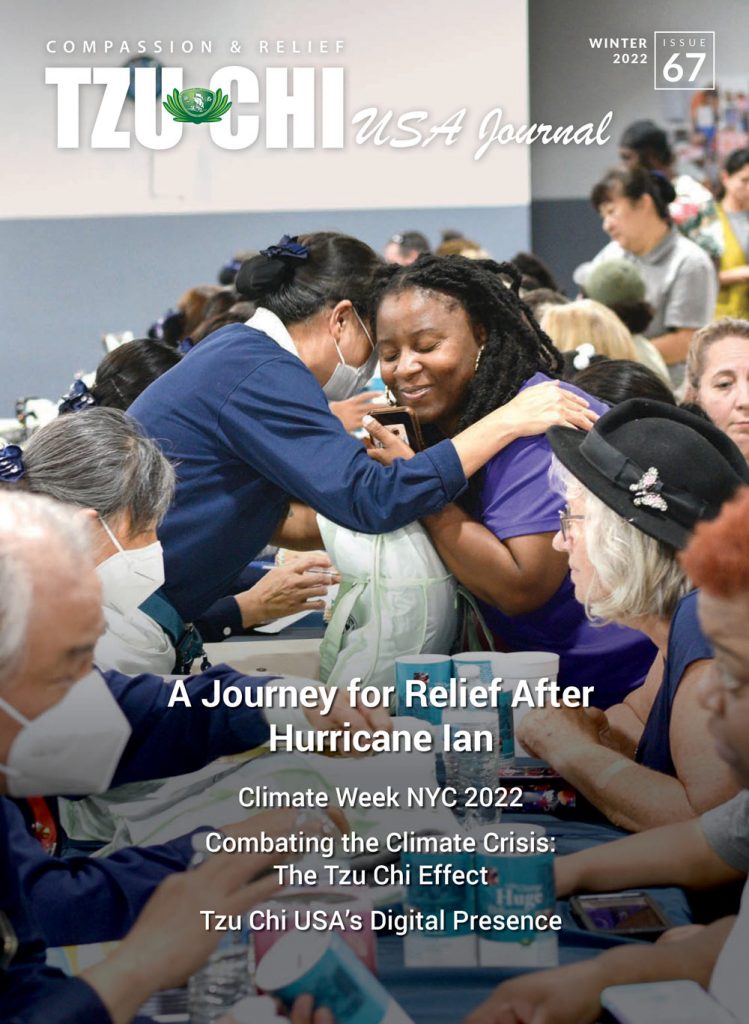CHAPTER 3
TIMA USA Northwest
Part 1
Written by Vivian Chang, Jennifer Chien, Karen Hsiang, Janet Li, Jessie Lin, Renee Liu, Kitty Lu, and Sherry Shih
Edited by Yingying Lee
Published #71 | Winter 2024 Issue
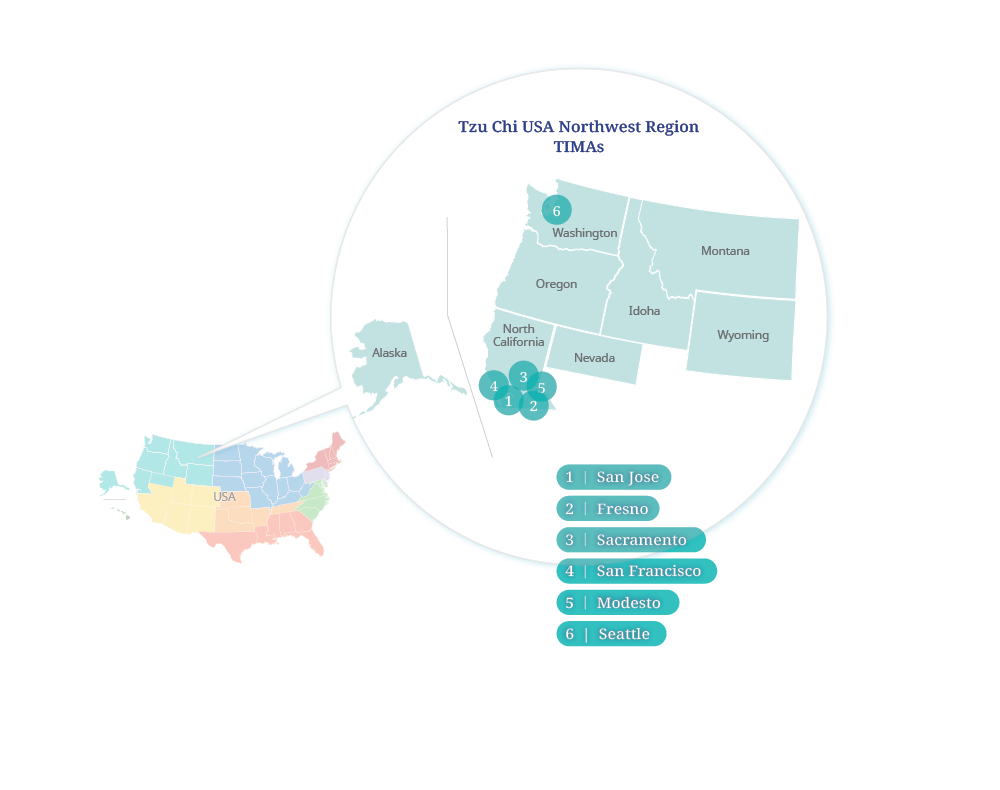
SHARE
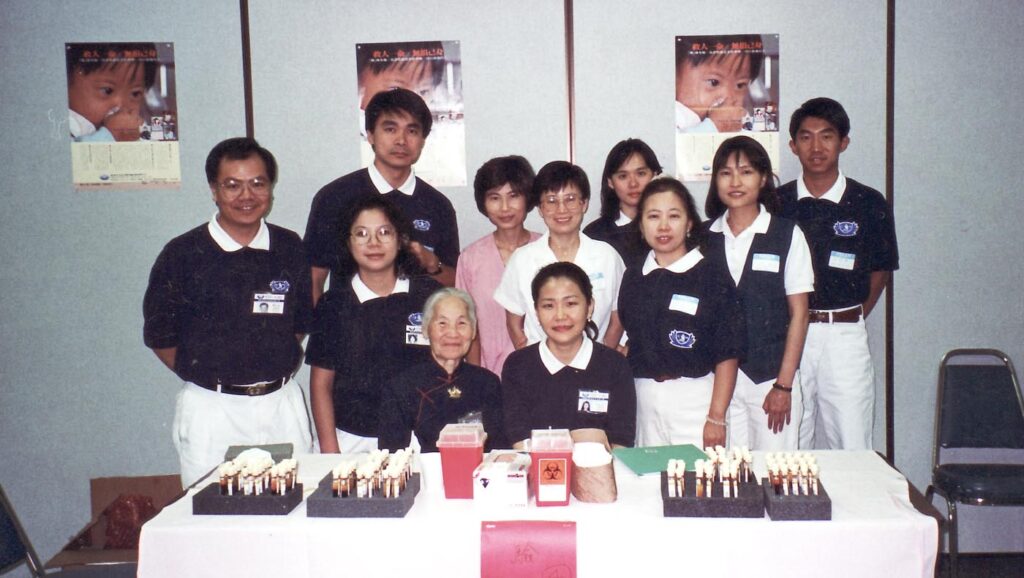
One’s first thoughts of California’s Silicon Valley are often of a high-tech-oriented, high-income area where innovation abounds. Yet, a more seldom explored side of this community is home to many low-income and medically uninsured families. However, at the Tzu Chi free clinics and outreach events, patients can receive equal and respectful medical services with peace of mind, regardless of their income.
Bone Marrow Matching
Tzu Chi USA Northwest Region’s medical mission commenced on November 15, 1992. At that time, Tzu Chi members sought to assist Wenling Wen, an international student at the University of Iowa who had been diagnosed with leukemia. Wen needed help finding a bone marrow match. For the first time, the Tzu Chi San Jose Service Center invited the public to complete blood tests for potential bone marrow donors.
In 1995, upon discovering Evan Chen, an international student at Stanford University, also had leukemia, the volunteers held blood tests again and successfully found a match. Deeply moved and inspired, the volunteers were determined to make a difference for more people. In that same year, the San Jose Service Center established a team to promote bone marrow donation headed by volunteer Suching Chung, and began holding a yearly blood testing event.
In 1996, Tzu Chi USA Northwest Region held the Three Hearts Charity Sale, where the bone marrow donation team promoted human leukocyte antigen (HLA) testing for bone marrow donation on-site, and successfully added blood samples from 80 more caring people to Tzu Chi USA’s Bone Marrow Donor Registry.
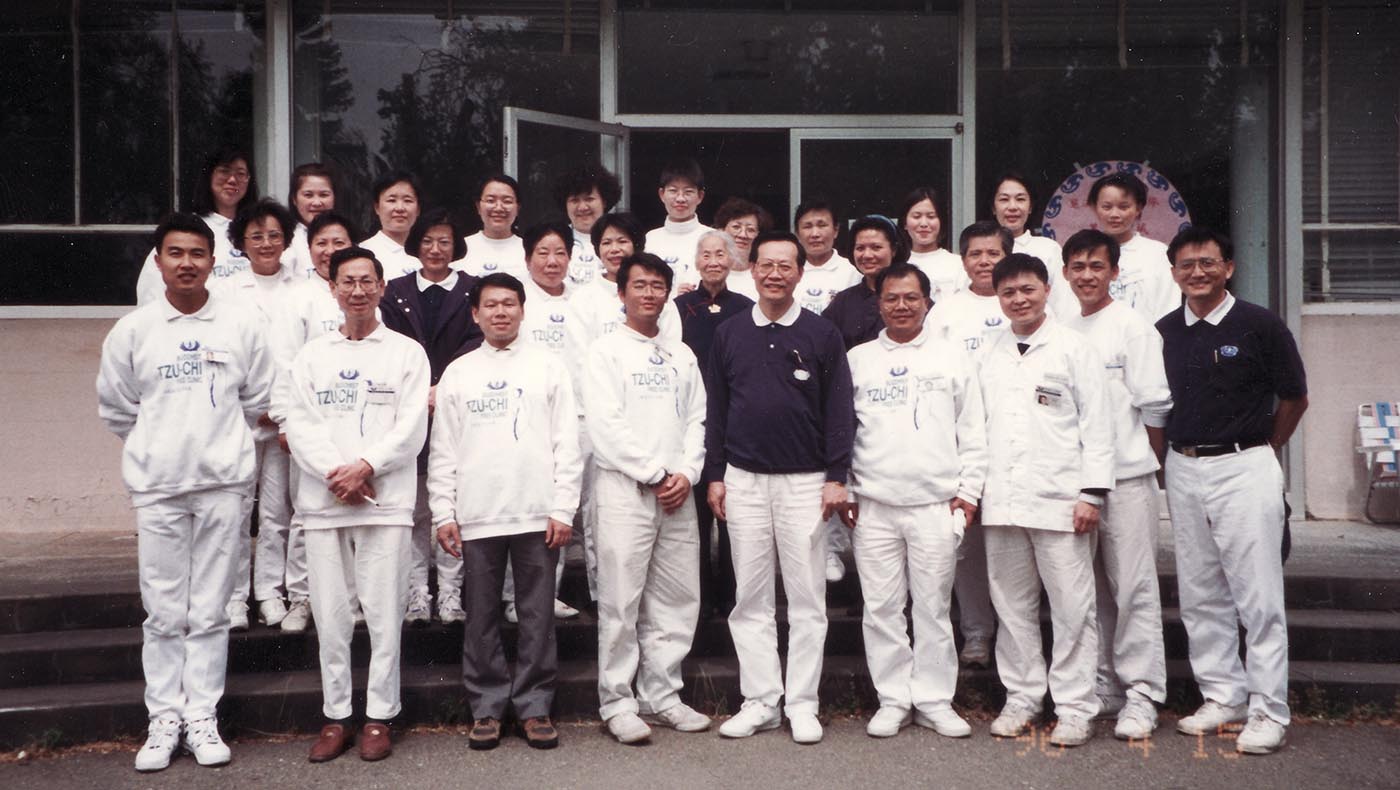
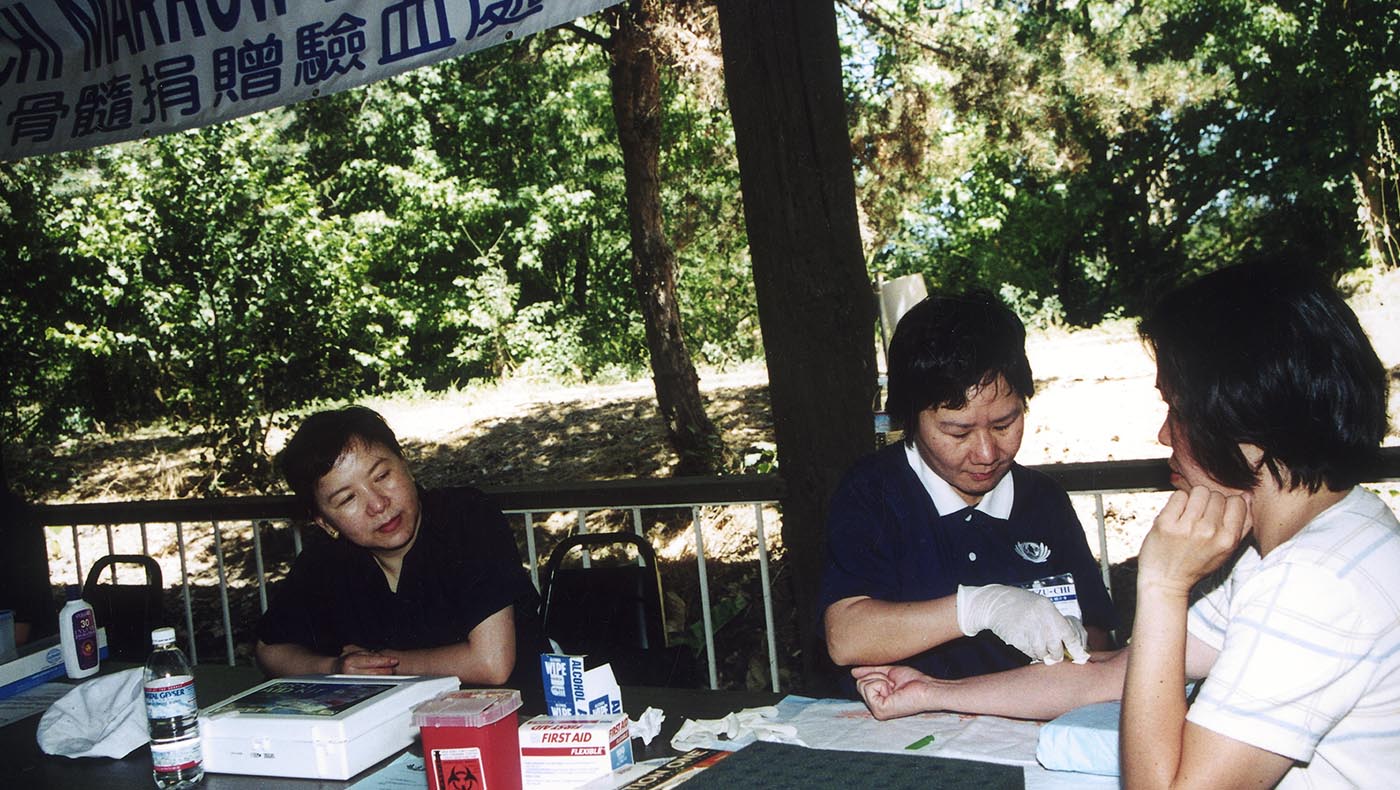
When finding a matching bone marrow donor or cord blood unit, a person’s ethnic background can be an important factor. This is because HLA markers used in matching are inherited, and some ethnic groups have differing tissue types from others. Usually, this means a person’s most promising chance of finding a donor might be with someone of the same ethnic background.
However, despite a substantial number of potential donors in the U.S., registries worldwide continue to face challenges in identifying matched donors for some patients of certain ethnicities. According to Be The Match®, a patient’s chance of having a matched, available donor on the Be The Match Registry® ranges from 29% to 79% depending on the patient’s ethnic background. At the time of these initial endeavors made by Tzu Chi, the matching success rate for Asian patients had been relatively low. Equipped with this knowledge and the urgency of saving lives, Tzu Chi’s bone marrow donation team volunteers often participate in community charity activities, set up stalls, and promote bone marrow donation registration.
It’s unbelievably precious to find that one in one hundred thousand chance of a bone marrow match and save a life.
Yuting Gao
Tzu Chi Volunteer
Promising advances in blood and marrow transplantation, as well as testing, have since been made. Volunteer Sandra Hung shared her personal experience, saying, “it’s like donating blood. Through stem cell extraction technology, the blood is transfused back into the body. The donation process is not complicated, there is no pain, and there is a chance to save a life.”
Establishing a Medical Outreach Team
Health talks were the first service provided by the Northwest Region’s medical mission. At the suggestion of Shiauchin Wang Lin, the founder of Tzu Chi USA’s San Jose Service Center, volunteer Sherry Shih began to invite medical professionals to give lectures at the office from time to time. And in 1993, her efforts expanded beyond San Jose to hold a health care talk at the Cupertino Library, hosted by Dr. George Yeh. In October of the same year, Dr. George Yeh hosted the “Mind, Body, and Spirit Health Talk,” featuring the renowned Dr. Chiunan Lai, who spoke on causes and treatments for chronic illnesses, which was well-received by the community. The seminar helped to equip the audience with pertinent information to promote healthy living for individuals and families, and to prevent illnesses from occurring. The Northwest Region still organizes in-person or online preventive lectures on various specific diseases, striving for the benefit of public health.
On October 21, 1995, the San Jose Service Center hosted its first medical outreach team workshop, which provided an initial understanding of the work and commitment expectations for the medical volunteers. The San Jose medical outreach team was formed on October 29, 1995, and operated until 1997 with assistance from the Buddhist Tzu Chi Free Clinic in Alhambra, California. The current medical team has been serving the community since 1998. The team, composed of Traditional Chinese Medicine (TCM) doctors, Western medicine doctors, dentists, nurses, and medical volunteers from both Northern and Southern California, visited the City of Ten Thousand Buddhas near Ukiah to conduct a free clinic. A total of 160 resident monks and Buddhist laypeople were treated. The trip marked the Northwest Region volunteers’ first large-scale community free clinic activity.
Dr. Mike Liaw was one of the founders of the medical outreach team and its first leader. He was an engineer in Silicon Valley at the time. During his off-hours, he was responsible for coordinating and planning related activities, organizing medical volunteer workshops, and establishing a complete process for free clinics; he later transitioned to medicine and became a TCM doctor.
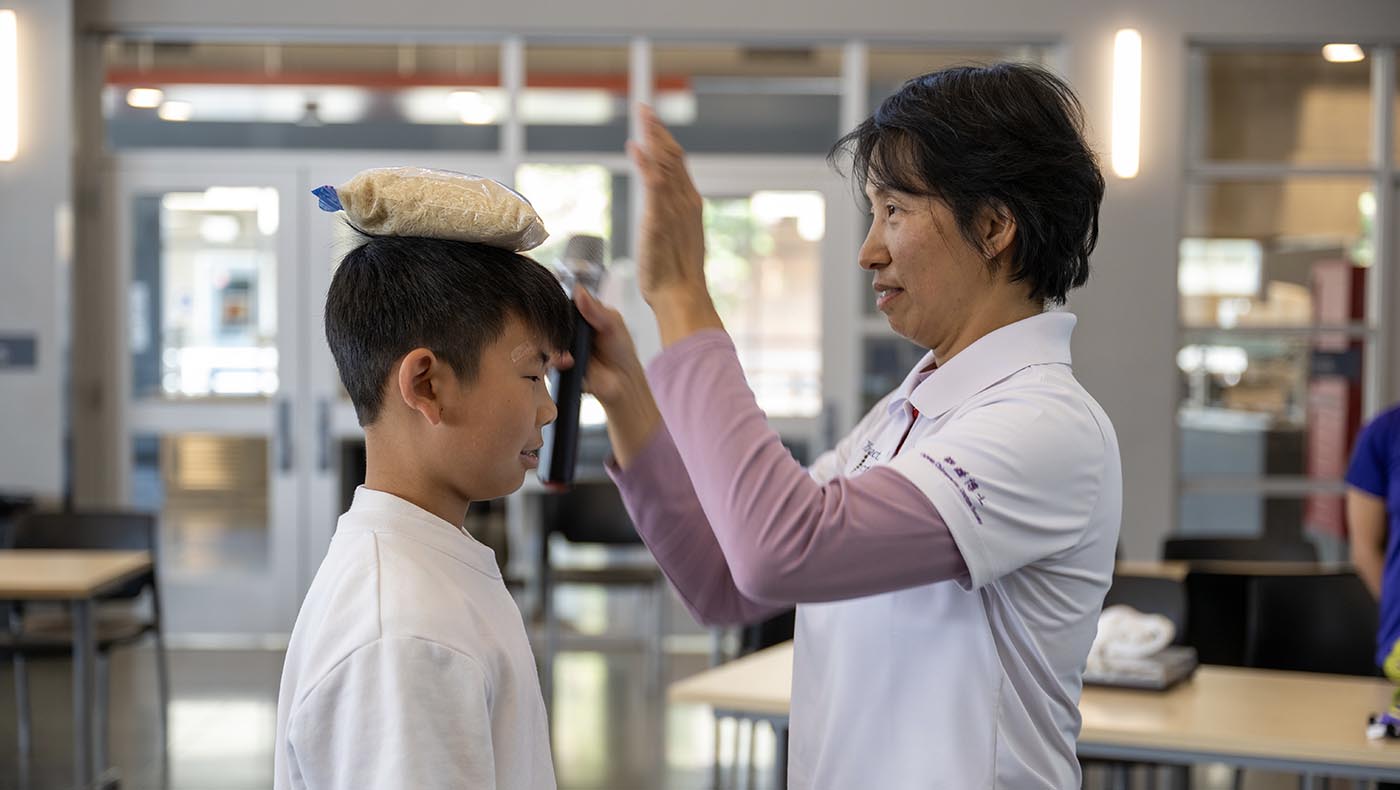
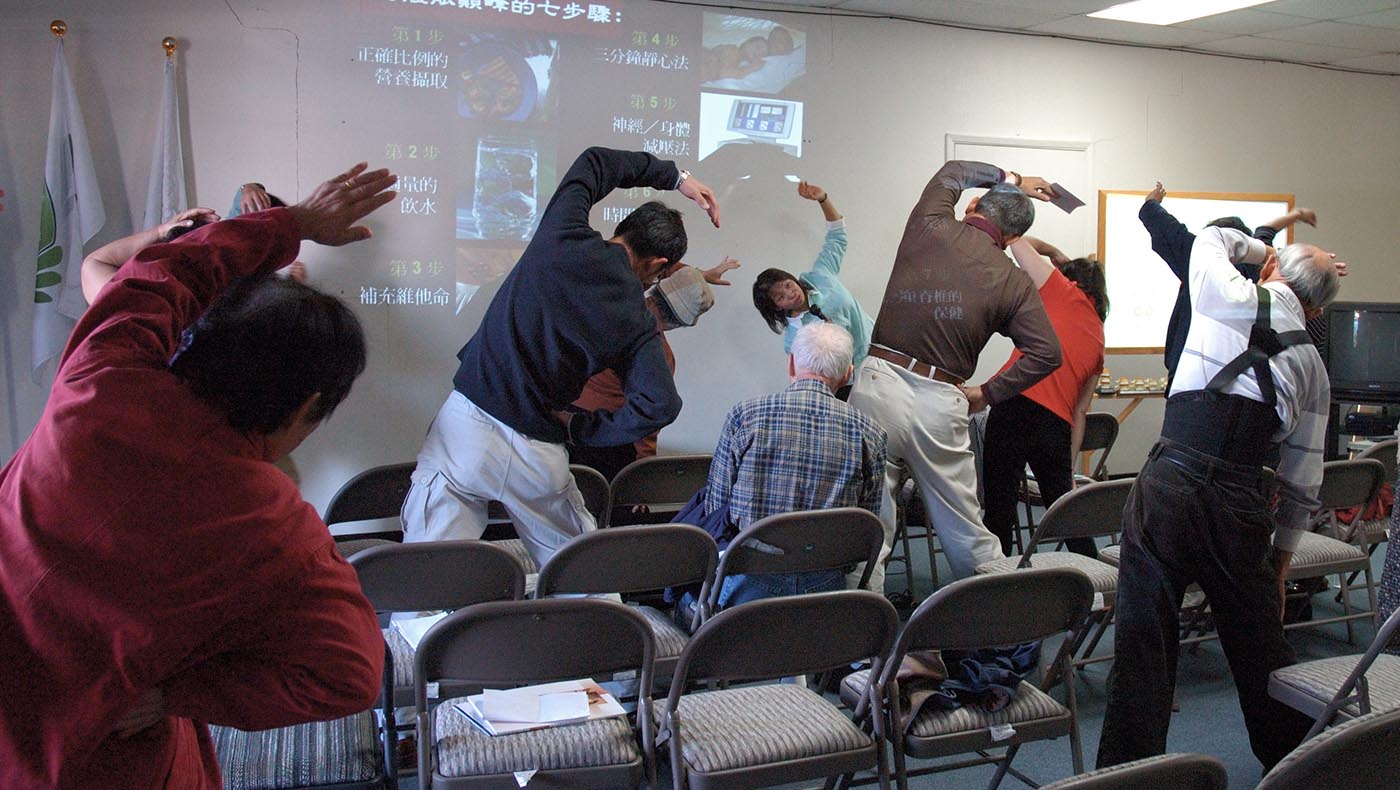
With the experience of this large-scale free clinic, the San Jose Service Center stepped up its efforts in organizing medical volunteer workshops to attract more medical professional and general volunteers to join Tzu Chi. From 1996, the San Jose medical outreach team was visiting the City of Ten Thousand Buddhas four to five times per year. Due to the lengthy distance between the two locations — a six-hour round trip — each medical event was held for two days. The volunteers gathered and left at dawn. Only after the drive there and the first day of service, which lasted until after 10:00 PM, would they go to the lodgings paid for by themselves and rest. They would then return to the clinic site again the next morning, staying for two consecutive days to assist the local monks who do not have medical insurance. Most medical outreach team volunteers worked in high-tech industries in California’s Silicon Valley and had high-stress work schedules. The medical outreach event kept them engaged for an entire weekend, after which they went to work on Mondays as usual. Yet, they were enthusiastic to do it all, with compassion and appreciation.
Gaining Momentum Together
In 1998, Tzu Chi USA’s San Jose Service Center was transformed into the Tzu Chi USA Northwest Region Office, with expanded functions. The medical services were consolidated, and a medical team with all-around operational capabilities was established. The team collaborated with other non-profit healthcare organizations to provide various regular health examinations for low-income families, in addition to bone marrow donation registrations, health lectures, and free flu shots. The medical team also appeared at various large-scale community activities organized by the Northwest Region Office, providing free health consultations to the public, checking hearing and vision, and measuring blood pressure, blood sugar, and cholesterol.
On October 24, 1999, a large-scale Health Day event was held for the first time at the Taipei Economic and Cultural Office in San Francisco, providing several free medical consultation services to people in the Bay Area. Many people queued up to receive flu shots long before the event started. Blood tests for bone marrow donation, oral health care, vision examinations, organ donation advocacy, Traditional Chinese and Western medicine consultation, and drug knowledge consultation were also conducted on-site. Health talks, as well as question and answer sessions on hepatitis, year-round health and diet therapy, periodontal disease, and drug knowledge, were provided by professional doctors and professors.
This event was the pilot for a large-scale free clinic. Due to the enthusiastic response from the participants, Austin Tsao, then Executive Director of the Northwest Region, resolved that it would be held every year in the future.
Since then, the community Health Day event has been held regularly two to three times a year. While federal and state regulations limit the services provided and Tzu Chi can’t offer actual medical diagnosis and treatment, the event helps many people who generally can’t afford to see a doctor learn more about their health conditions and have their concerns explained. Additionally, seeking regular medical consultations could prevent minor conditions from evolving into more serious illnesses.
The goal of the Health Day is preventive medicine oriented. We hope that through careful consultation between doctors and patients, everyone can get healthcare education information on how to take care of themselves.
Yuaner Wu
TIMA Nurse
And it’s not just the patients who gain something meaningful from these events. “What I am most grateful for is that through the free clinic service, more medical staff had been attracted to join the volunteering initiative,” recalled volunteer Sherry Shih. Through this, the community gathers more love and energy to carry forth more good deeds for others.
